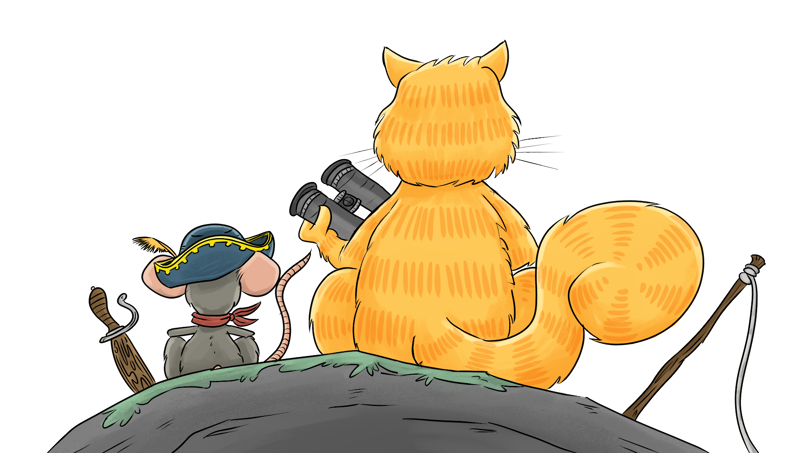Meet the new characters
Read about the new High Five! characters.
Do you have anything in common[explanation: have in common [ˌhæv ɪn ˈkɒmən] – ühist olema] with the new characters?
- They live in Melbourne.
- Their last name is Emvula.
- Their last name is Bennet.
- They go to an engineering club.
- They are Maggie’s friend.
- They enjoy public speaking.
- They are extremely interested in robots.
- They studied different things about animals.
- They are Molly’s relative.
- They are from New Zealand.
I’m from ...
The new High Five! characters come from the following countries and regions. For each statement, choose the correct answer.
I have relatives everywhere!
Listen and read.
All around the world
CHARLIE: | Rosie, why do you have so many cousins all around the world? |
ROSIE: | Well, as you know, rats have very large extended families[explanation: extended family [ɪkˌstendɪd ˈfæm(ə)li] – laiendatud pere]. |
CHARLIE: | Indeed[explanation: indeed [ɪnˈdiːd] – tõepoolest]. |
ROSIE: | I think I have relatives everywhere[explanation: everywhere [ˈevriweə(r)] – kõikjal, igal pool]. At least where people speak English. |
CHARLIE: | Like where? |
ROSIE: | For instance[explanation: for instance [fər ˈɪnstəns] – näiteks], in Mumbai, India, in Hong Kong, and in Australia, of course. |
CHARLIE: | Australia! Do you have relatives in Australia, too? |
ROSIE: | I do, but I don’t like to talk about it. They sent my great-great-great-great-uncle[explanation: great-great-great-great-uncle [ˌɡreɪtˌɡreɪtˌɡreɪtˌɡreɪtˈʌŋk(ə)l] – vanavanavanavanaonu] there on a prison ship[explanation: prison ship [ˈprɪz(ə)n ˌʃɪp] – vangilaev]. |
CHARLIE: | Why did they do that? |
ROSIE: | I believe he stole[explanation: steal, stole, stolen [stiːl], [stəʊl], [ˈstəʊl(ə)n] – varastama] some cheese. But I have a much more interesting story[explanation: story [ˈstɔːri] – jutt, lugu] about my great-great-great-aunt[explanation: great-great-great-aunt [ˌɡreɪtˌɡreɪtˌɡreɪtˈɑːnt] – vanavanavanatädi] Esther. She was a pirate[explanation: pirate [ˈpaɪrət] – piraat, mereröövel] in the Caribbean. |
CHARLIE: | What’s a pie-rat? |

- Rosie has many cousins in different countries.
- In Rosie’s words, rats usually have small extended families.
- Some of Rosie’s relatives live in Austria.
- Rosie’s great-great-great-great-uncle was on a prison ship.
- Rosie believes her great-great-great-great-uncle stole some chocolate.
- Esther was Rosie’s great-great-great-aunt.
- Esther was a pirate in the Indian Ocean.
Discuss with your partner.
- What is an extended family?
- What doesn’t Rosie like to talk about?
- Do you have relatives abroad? If so, where do they live?
Do you remember?
- Martin usuallychicken for lunch.
- Theretwo game rooms in this hotel.
- Wea reservation for three nights.
- Wherethe baggage claim?
- Sorry, Iin a hurry. Let’s talk later.
- Therea lot of traffic on the roads today.
- Ia cough and a fever. What should I do?
- Julia alwaysa lot of fun playing hide-and-seek.
- My older brothernever late for school.
- This tense refers to something happening at the moment.
- Some typical expressions are usually, every day, twice a week.
- This tense refers to something that happens regularly.
- Some typical expressions are now, at the moment, these days.
- We use do and does to make questions and negative sentences
- We use am, is, are to make questions and negative sentences.
Go to Fingertips for more information.
- Ben to watch bald eagles at Yellowstone National Park.
- We the road now. I’ll call you when we arrive at the hotel.
- Hurry up! Your dad for you in the car.
- How long to go to Pärnu?
- I this word. What in Estonian?
- Their flight at 9 a.m., so they to be at the gate by 8.30.
- No worries, Emma . We didn’t see any bears near her grandma’s cottage.
Discuss with your partner.
- What do you usually do on Saturday mornings?
- What are you reading these days?
- How often do you play video games or watch films?
- What’s the weather like today?
- What do you think your mother/father/best friend is doing at the moment?





